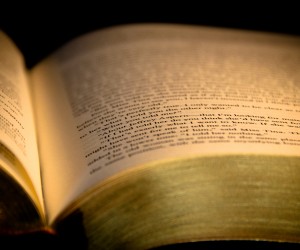“Literature is a term used to describe written and sometimes spoken material. Derived from the Latin word litteratura meaning "writing formed with letters, "literature most commonly refers to works of the creative imagination, including poetry, drama, fiction, nonfiction, journalism, and in some instances, song.”
In his book called Writers in Politics, Ngungi Wa Tiongo writes:
“…Literature reflects the life of a people. It reflects in word images, a people's creative consciousness of their struggles to mould nature through co-operative labour and in the process acting on and changing themselves. It reflects in word images a people's consciousness of the tensions and conflicts arising out of their struggles to mould a meaningful social environment founded on their combined actions on nature to wrest the means of life: clothing, food and shelter. Literature thus contains people's images of themselves in history and of their place in the universe. “
The introduction of reading, for most, usually begins at school level. This means that what children learn at school paves the mentality of thought and decides what kind of adults children will grow up to be.
The Department of Basic Education has been urged to incorporate African and South African literature in South African schools, however, there has been strides by the department as the curriculum does contain some scripts of African origin. This includes work from the likes of the legendary Chinua Achebe, Athol Fugard and others.
By ensuring that African Literature is taught in schools, the history, culture and identity of Africans is then deeply entrenched in the minds of the young and preserved for future generations.
Xolisani Breakfast, a Teaching student further iterates, “It is because the white who came here by boat, ensured that they do away with our African books by ensuring that they enforce us to believing Europeans books are the best. We have few African writers that are made known to the public spectrum for an example Prof Robert Mangaliso Sobukhwe was a writer of many books assisting isiXhosa, today not a single of his writings was made known to the African Child”
But one would note that - although the department is stern on the introduction of African content for pupils, most of it is out-dated and not modernised, even though we have authors and publishers who are emerging with powerful and intriguing content – one must then wonder if modern literature is perhaps not up to standard for the school curriculum.
IsiXhosa poet, Siphosethu Phikelela, shares her views on the teaching of African Literature in schools.
“I think keeping and letting go of old literature should depend on its relevance today. New African literature must be introduced in schools, yes. But is that where it should end? I want to tell my own story, here, and I want it to reach all parts of the world, but without it being diluted. I would recommend strongly relevant and purely truthful African literature (history) to be taught in our schools. “
But beyond the walls of a classroom, how accessible is the literature? Those without the privilege of attending an institution of higher learning, are not informed about where and how they can get access to books and screenplays and poetry that is proudly African. In South Africa particularly, it is very difficult to keep up with new content unless it is that of an already established artist/writer. Local content is not disseminated effectively.
Television personality and businesswoman – Bonang Matheba (affectionally known as the Queen B) recently released her autobiography titled From A to B. Following the launch of the book, social media was a buzz with people criticising the poor writing quality, bad grammar, incorrect usage of tenses and many other errors in the book. This conversation opened a platform for the debate of quality and effort in African and South African Literature.
Reading is a tool, which we can use to capture and groom the minds of young people in order to have a society of informed individuals. As literature is a form of preservation of the different aspects of our continent, as much as we need to always maintain an open mind and learn about other countries and their way of life, it is equally important that we invest in improving skills within the production of quality and skilled literature.






